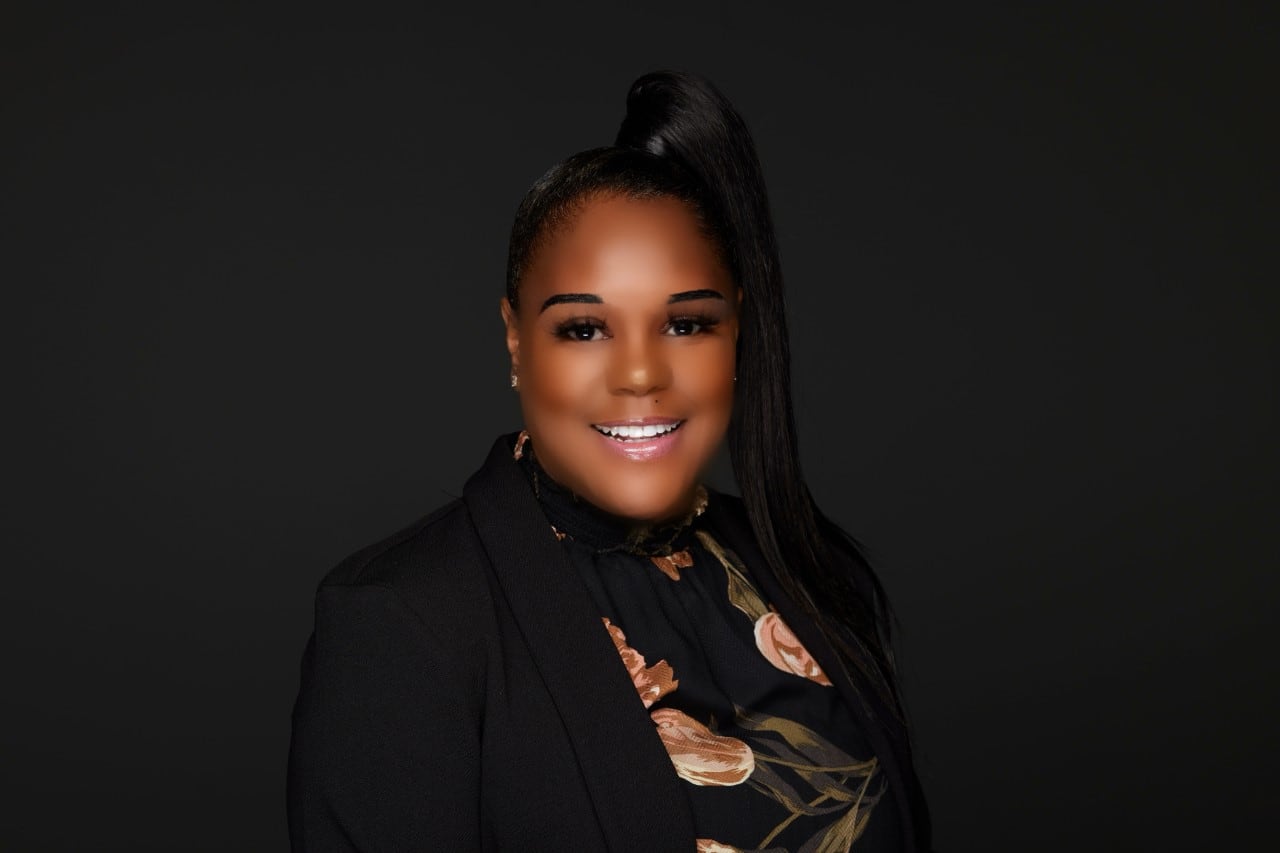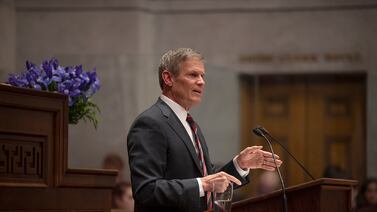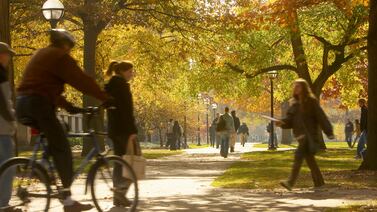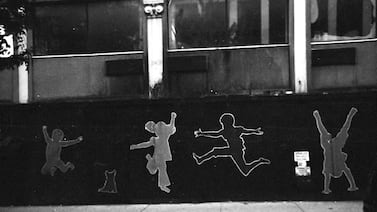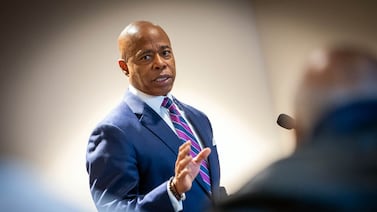Sign up for Chalkbeat’s free monthly newsletter How I Teach to get inspiration, news, and advice for — and from — educators.
Nikia Garland takes her students all over the world.
An English and AP Language and Composition teacher at Arsenal Tech High School, she uses Google Lit Trips to take students virtually to Sweden and Norway while reading “Beowulf.” And during her lessons on George Orwell’s “1984,” Garland tasks her classes with color-coding countries according to the level of government surveillance.
“I strive to teach students how to think critically using real-world examples. I want students to take responsibility for their learning,” she said. “I like to provide intriguing lessons that cause my students to want to know more about what I am teaching.”
That means she adapts Shakespeare to a teenager’s palate by occasionally assigning students to create a playlist of 15 songs, each accompanied by a paragraph that explains how the song connects to “Macbeth’s” plot and themes.
“I layer my teaching, sort of like a blooming onion,” she said.
Always looking to enhance teaching and learning, Garland has applied for a number of grants. One funded a field trip earlier this year to the Candles Holocaust Museum & Education Center in Terre Haute, an experience that paired with “The Book Thief,” a novel set during the Holocaust. Another grant allowed Garland to study oral traditions in Africa with a visit to Kenya and Ghana — an experience that she later reflected on as “returning home to the Motherland.”
Now, she’s one of 50 educators to be selected as a Grosvenor Teaching Fellow, which will bring her to the fjords and Arctic Svalbard of Norway aboard the National Geographic Endurance expedition ship. She’s hoping the trip will inform her curriculum in a way that inspires her students to become environmental stewards.
Garland previously taught ballet at the former Nicholson Performing Arts Academy at School 70, and she studied at the Jordan College Academy of Dance at Butler University. She’s also a proud Broad Ripple High School alumna. (“Rockets for life!” she said.)
She spoke recently with Chalkbeat about her latest fellowship, the value of teaching environmental and community stewardship, and the most memorable class of her 24-year teaching career.
This interview has been lightly edited for length and clarity.
How do you plan to use the experience from the Norway fellowship in your everyday English teachings?
I believe the fellowship will give me more tools to continue building geographic awareness.
I would like to start locally within their own communities. I haven’t yet decided what this will look like, but I have reached out to a few agencies — The Nature Conservancy and Indy Parks — to partner with me on this initiative.
I also want to do something community-based as well, possibly about the impact of gentrification and redlining in their neighborhoods. I want to center whatever I do around them. I want to know what they are curious about and start there.
Why is it important for you to teach your students to become environmental stewards?
The city of Indianapolis is only a small piece in the global puzzle, but everything we do or don’t do to take care of the planet has a deep impact worldwide. Continuing to disregard issues such as global warming and pollution is dangerous to humanity. It reminds me of a book I’ve taught by Octavia Butler, “The Parable of the Sower.” I also teach “The Space Traders,” a short story by Derrick Bell.
I believe we can do small things that, if done consistently, turn into great acts. I hope to inspire them to become more engaged with their immediate communities. Texts such as the ones I mentioned help kids understand why caring for the environment is important. I also want to provide them with the tools and knowledge necessary to live eco-friendly and sustainable lives.
What is one interaction with a student that has changed how you view the profession of teaching?
It would be impossible to name just one student. I have a collective — the Arlington High School class of 2007.
I must begin by saying that most of them did not like me initially. I have always been a strict teacher with high expectations and rigorous content. However, I was able to loop with that particular class of students for three years.
The three years I spent with them allowed me to get to know my students on a deeper level and vice versa. I became invested and grew to truly love them. And the love, loyalty, and respect they showed me was unmatched.
For example, my husband and mother both died in the same year. This was after they had graduated. But so many of them came back to give me flowers and comfort me. So many that my principal had to tell the secretary to waive the no-visitor policy during the day and allow them all in. One of my students from that class had lost contact with me, so she Googled me one day and saw that I was now a breast cancer survivor. She found me on Twitter and sent me $100 so I could buy myself some flowers. I could really go on and on.
There’s an urban saying about such relationships, “locked in.” We are bonded — through celebrations such as weddings, births, and college graduations and even in trials such as death and incarceration. I consider them family, and my life has been infinitely blessed simply because I was allowed to be their teacher. I am the lucky one. They are the loves of my teaching life.
What’s your favorite lesson to teach and why?
That’s a tough question because I have so many. But I really enjoy teaching poetry. I love the complexity of some poems, the critical thinking and reading required to comprehend the content, the way it engages students, and the ability to use it as a springboard for longer writing assignments. It also brings out student creativity. We have a lot of rich, provocative discussions and assignments when I teach poetry.
Tell me about your own experience with school as a child and how it affects your work today.
I loved school. I am a product of IPS, K-12, and I had some stellar educators. As a result, it has motivated me to give my students the same kind of education I received. It was rich, diverse, interesting, rigorous, and relevant.
What is one piece of advice you’d give to college students pursuing an education career?
Understand that teaching is both an art and a science, and you cannot have one without the other. Science is the pedagogy. Art is the creativity used to engage students. Be fluent in both.
Amelia Pak-Harvey covers Indianapolis and Marion County schools for Chalkbeat Indiana. Contact Amelia at apak-harvey@chalkbeat.org.


